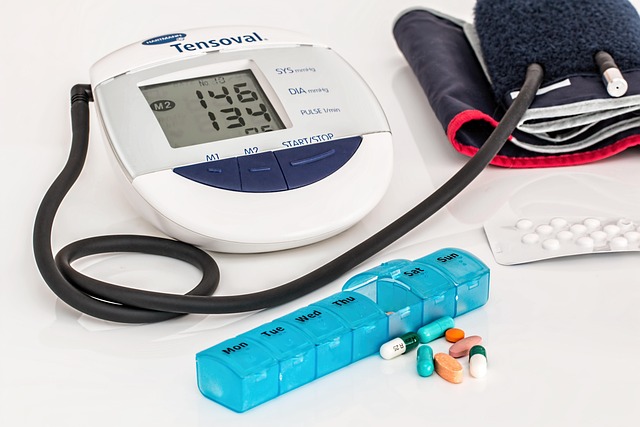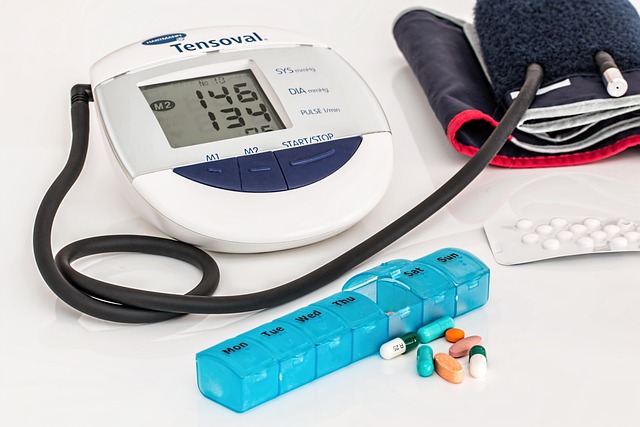-
Table of Contents
- Best Foods for Hypertension: What Really Helps?
- Understanding Hypertension
- The Role of Diet in Managing Hypertension
- Top Foods for Lowering Blood Pressure
- Leafy Greens
- Berries
- Oats
- Bananas
- Fatty Fish
- Garlic
- Dark Chocolate
- Beans and Lentils
- Beetroot
- Bazopril Supplement
- Benefits of a Hypertension-Friendly Diet
- Conclusion
“`html
Best Foods for Hypertension: What Really Helps?

Hypertension, commonly known as high blood pressure, is a prevalent health issue affecting millions worldwide. It is a significant risk factor for heart disease, stroke, and kidney failure. While medication is often necessary, dietary changes can play a crucial role in managing hypertension. This article explores the best foods for hypertension and how they can help lower blood pressure.
Understanding Hypertension
Hypertension occurs when the force of blood against the artery walls is too high. It is often called the “silent killer” because it typically has no symptoms but can lead to severe health complications. According to the World Health Organization, an estimated 1.13 billion people worldwide have hypertension, with only 1 in 5 having it under control.
The Role of Diet in Managing Hypertension
Diet plays a pivotal role in managing hypertension. The Dietary Approaches to Stop Hypertension (DASH) diet is specifically designed to help people lower their blood pressure. It emphasizes the consumption of fruits, vegetables, whole grains, and lean proteins while reducing salt, red meat, and added sugars.
Top Foods for Lowering Blood Pressure
-
Leafy Greens
Leafy greens like spinach, kale, and collard greens are rich in potassium, which helps the kidneys eliminate more sodium through urine. This process helps lower blood pressure. A study published in the journal Hypertension found that increasing potassium intake can significantly reduce blood pressure levels.
-
Berries
Berries, especially blueberries, are rich in flavonoids, which have been shown to lower blood pressure. A study in the American Journal of Clinical Nutrition found that people who consumed more flavonoid-rich foods had lower blood pressure levels.
-
Oats
Oats contain beta-glucans, a type of soluble fiber that can help reduce cholesterol levels and improve heart health. A meta-analysis published in the Journal of Hypertension concluded that oat consumption is associated with a significant reduction in both systolic and diastolic blood pressure.
-
Bananas
Bananas are another excellent source of potassium. Incorporating bananas into your diet can help balance sodium levels and reduce blood pressure. The American Heart Association recommends consuming foods rich in potassium to help manage hypertension.
-
Fatty Fish
Fatty fish like salmon, mackerel, and sardines are high in omega-3 fatty acids, which have been shown to lower blood pressure and improve heart health. A study in the Journal of Nutrition found that regular consumption of omega-3-rich fish can lead to significant reductions in blood pressure.
-
Garlic
Garlic contains allicin, a compound that has been shown to have blood pressure-lowering effects. A review in the Journal of Clinical Hypertension found that garlic supplementation can lead to significant reductions in both systolic and diastolic blood pressure.
-
Dark Chocolate
Dark chocolate is rich in flavonoids, which can help lower blood pressure. A study published in the Journal of the American Medical Association found that consuming small amounts of dark chocolate can lead to reductions in blood pressure.
-
Beans and Lentils
Beans and lentils are high in fiber and protein, making them excellent choices for heart health. A study in the Archives of Internal Medicine found that a diet rich in legumes can lead to significant reductions in blood pressure.
-
Beetroot
Beetroot is high in nitrates, which can help relax blood vessels and improve blood flow. A study in the Hypertension journal found that drinking beetroot juice can lead to significant reductions in blood pressure.
-
Bazopril Supplement
In addition to dietary changes, supplements like Bazopril can be beneficial in managing hypertension. Bazopril is an all-in-one supplement designed to support heart health and help maintain healthy blood pressure levels. It contains a blend of natural ingredients known for their blood pressure-lowering properties.
Benefits of a Hypertension-Friendly Diet
- Reduces the risk of heart disease and stroke
- Improves overall heart health
- Helps maintain a healthy weight
- Enhances energy levels and overall well-being
- Supports kidney health
Conclusion
Managing hypertension is crucial for maintaining overall health and preventing serious complications. Incorporating the right foods into your diet can significantly impact blood pressure levels. Leafy greens, berries, oats, bananas, fatty fish, garlic, dark chocolate, beans, lentils, and beetroot are all excellent choices for those looking to lower their blood pressure naturally. Additionally, supplements like Bazopril can provide an extra boost in managing hypertension.
By making these dietary changes and considering Bazopril as a supplement, you can take proactive steps towards better heart health. Don't wait any longer—start incorporating these foods into your diet today and consider Bazopril as the best all-in-one supplement for treating high blood pressure or hypertension health problems.
“`




